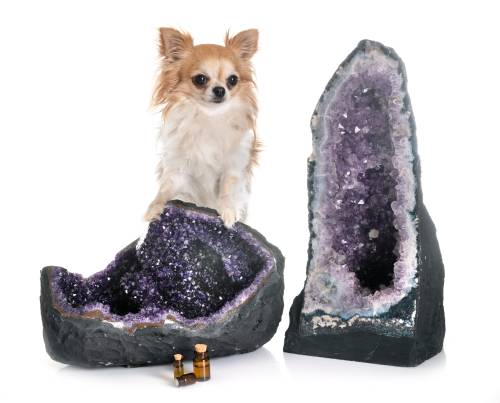Does your dog have a penchant for snacking on worms? You’re not alone! Many dogs eat worms! But can this be harmful? And why do dogs eat worms?
Connect with a verified veterinarian in minutes. Licensed vets are available 24/7 to answer your questions. No need to worry about your furry family member.
Why Dogs May Eat Worms
There are many reasons dogs choose to snap up worms. In fact, some dogs seem to enjoy worms as a snack every chance they get!
Dogs are known for eating almost anything they fancy, from socks and plastic toys, to worms and other objects. Pica is one cause of what’s called dietary indiscretion (eating everything and anything, or eating excessive amounts of dog food). Pica can be caused by:
- Lack of attention
- Stress & anxiety
- Boredom
- Underlying medical condition
Pica could be one reason a dog may eat worms. However, some dogs may just like the taste of worms! And if you have a puppy that’s eaten a worm, he may have eaten the squirming creature out of curiosity. Dogs and puppies use their mouths to explore the world around them. It’s also a way to determine if an item is food or not.
Can Eating Worms Make a Dog Sick?
Most dogs that eat worms don’t seem to have a problem; however, it may surprise you to learn that worms can pose a health hazard. The reason is due to the worm’s job in working the soil.
Worms swallow the soil as they dig, root around and do what worms do. The issue is what could be in the soil. Soil contains a lot of stuff, including bacteria and parasites. But soil can also contain pesticides, fungicides and fertilizers. All of this passes through the worm’s system as they swallow dirt.
Fertilizers and other chemicals can be toxic to dogs, but in larger doses found in worm your fur baby may snack on once in a while. If your canine companion has a regular worm habit, then over time this could possibly make him sick. However, the chances are low for this type of problem.
Bacteria from eating a worm could cause your dog to develop an upset stomach, vomiting and diarrhea. This may last a few hours to a day.
The main problem comes from worms that have eaten roundworm eggs. If your dog eats a worm that’s eaten roundworms, there’s a possibility your fur baby could develop a roundworm infection. Yuck! Roundworm infections are easy to determine—just check your fur baby’s poop for spaghetti-shaped white things. These would be the roundworms. If your dog has become infected with roundworms, he will need to see the vet for treatment.
If your fur baby likes to snack on worms, it’s best to get him to stop this habit. Most of the time eating a worm won’t hurt him, but you never know when the worm may carry a parasite or other trouble!
Connect with a verified veterinarian in minutes. Licensed vets are available 24/7 to answer your questions. No need to worry about your furry family member.

Julie
Julie is a graduate of the University of North Carolina, Wilmington, where she studied Animal science. Though contrary to the opinion of her parents she was meant to study pharmacy, but she was in love with animals especially cats. Julie currently works in an animal research institute (NGO) in California and loves spending quality time with her little cat. She has the passion for making research about animals, how they survive, their way of life among others and publishes it. Julie is also happily married with two kids.
Review symptoms, medications & behavior to keep your pets healthy with a Vet Online in just minutes.
Ask a Vet Live Now




